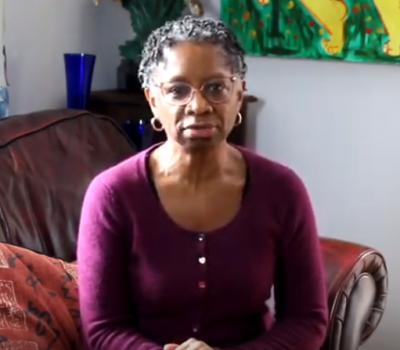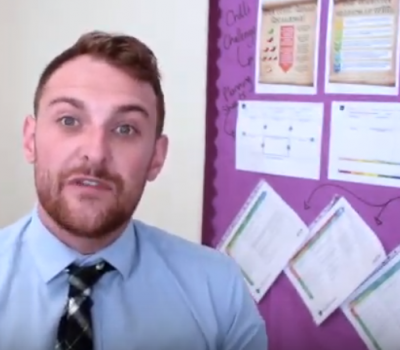


Our team sorts through all blog submissions to place them in the categories they fit the most - meaning it's never been simpler to gain advice and new knowledge for topics most important for you. This is why we have created this straight-forward guide to help you navigate our system.


And there you have it! Now your collection of blogs are catered to your chosen topics and are ready for you to explore. Plus, if you frequently return to the same categories you can bookmark your current URL and we will save your choices on return. Happy Reading!
On the eve of A-Level results day, I (Jennifer) have sat down to reflect on what my son and many others up and down the country might be experiencing right now.

It goes without saying that now is not the time to add pressure and instead it’s absolutely time to offer reassurance that whatever the results on the paper tomorrow one thing is certain, they do not define your life and who you are. Whatever the results it’s the start of the next chapter, whatever that might be. It’s not the time for ‘I told you so’ or ‘you should have tried harder’ but it’s absolutely the time to help support, celebrate and plan together.
Many children struggled with A-levels for a variety of reasons; whether it be the content, the self-discipline or maybe reaching an exceedingly high target grade, whereas others may have worked their finger to the bone. In fact, it is sometimes these young people who need our support more than any others.
If a child is disappointed with their results, then let them be. Acknowledge their feelings and allow them to sit with those emotions with your empathy and support – “The only way out is through”, if we dismiss their disappointment then we run the risk of them shutting down the lines of communication, it’s so important that they feel they have a safe space to be heard and understood. For every pupil who receives a D instead of a C there will be someone who receives an A instead of a A* and be equally disappointed.
Let them feel and then work with them to formulate a plan of what to do next, if their results don’t alter there plans then support them through the emotional changes that such a big transition can bring, if the results do alter their plans then sit down with them once calm is restored and start trouble shooting.
Create a plan of what to do next, clearance, work, travelling, gap year, whatever it is, brainstorm ideas and then make a mind map that helps them to work out what it is they would like to do next. These decisions are huge and young adults’ brains aren’t fully developed so these choices can be difficult and cause a lot of feelings of overwhelm and anxiety. Respect and appreciate that and use language that demonstrates your support and understanding. Stay away from judgement and putting what YOU think they should be doing on to their shoulders, scaffold the process but try not to hijack it.
When I was 18 years old, I had no clue what I wanted to do, I was lost in a fog of depression and anxiety and felt worthless and unsure of what my future would bring. What I needed was time. I needed support. I needed to work through my life and discover my passion before returning to the workforce to study with desire and determination, anybody suggesting I should have done anything other than that would have pushed me over the edge.
I often talk about the importance of putting long-term outcomes over short-term ones and there will be many young people receiving their results tomorrow who with the right support will go on to achieve great things in their life and careers, but not everybody will know what that is and that’s okay. We must change perceptions to the contrary to be more in line with what we know about the development of the frontal cortex of the brain. A lot of this cohort will go on to have jobs that aren’t even out there yet, by following their passions they could very well end up with a career that they love – they could carve their own path.
Advice I’ll be giving to my son? Do what feels right and know that we’ll be here to support you. Want to go to Uni? Great. Want to work and gain life experience for a while? Great.
What I will say is, that whatever you choose to do keep doing things that you love, pursue your passions and take life’s experiences with the knowledge that as a family we will be here to support, listen and help you to reflect both professionally and personally.
Your life will not end tomorrow whatever the result, my goodness, it’s only just starting.

The author

Read more

Read more

Read more

Read more

Read more

Read more

Read more

Read more


Are you looking for solutions? Let us help fund them! Nexus Education is a community of over 11,000 schools that come together to share best practise, ideas and CPD via online channels and free to attend events. Nexus also offers funding to all school groups in the UK via nexus-education.com


Established in 2011, One Education is a company at the heart of the education world, supporting over 600 schools and academies. Our unique appeal as a provider is in the breadth and synergy of the services we offer, supporting school leaders, teachers and support staff to achieve the best possible outcomes for their pupils and staff.

School Space is a social enterprise that has empowered schools for over 12 years through their profitable and hassle-free lettings services. So far, they’ve generated over £5 million in revenue for education, helping to connect over 200 schools with their local communities.


Unify is an online sales and marketing tool that allows users to create tailored personalised documents in moments.


There’s nothing special about the energy we sell. In fact, it’s exactly the same energy as all our competitors provide. But there is something special about the way we do it. Where others complicate the process, we simplify it. Where others confuse customers with hidden terms, we’re an open book. And where others do all they can to make as much money from their customers as possible, we do all we can to make as little. Everything we do, we do it differently. Our customers are a privilege. One we’ll never take advantage of.


Securus provide market-leading monitoring solutions to safeguard students on ALL devices both online and offline. We also offer a full monitoring service, where we carry out the monitoring on behalf of the school, freeing up valuable staff resources. From the smallest school to large MAT groups, Securus offers safeguarding protection for all!


Bodet Time offers dedicated solutions to education through lockdown alerts, class change systems, PA and synchronised clock systems. Improving time efficiency of the working and school day; ensuring safety through lockdown alerts; increasing communication with customised broadcast alerts.


Robotical makes Marty the Robot - a walking, dancing coding robot that makes programming fun and engaging for learners as young as 5. Our robots come with a full Learning Platform that has complete teaching resources, to make lesson planning a breeze.